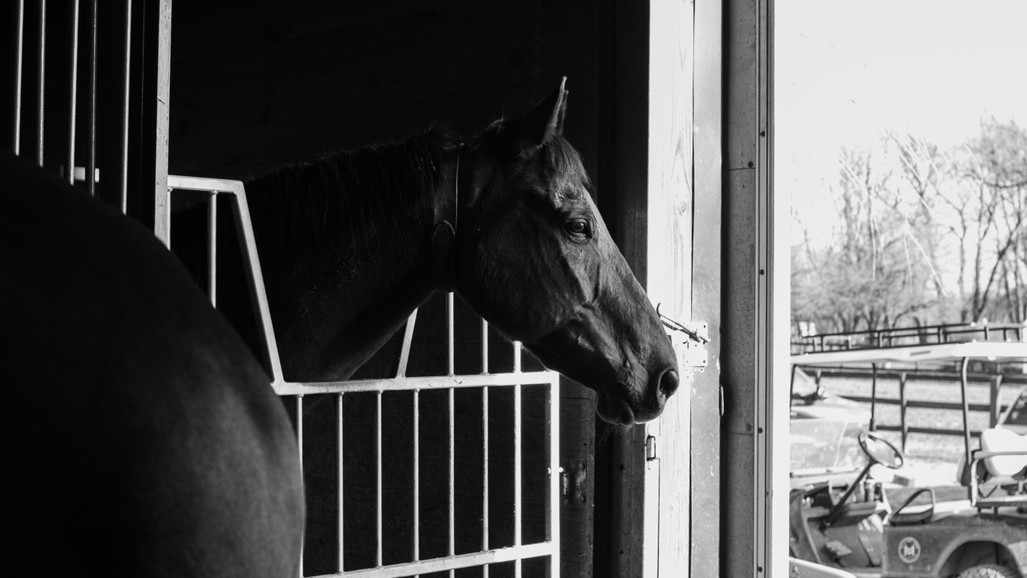
Equine Ulcer Prevention: Maintaining Horse Stomach Health
Posted by Aubry Boonstra on 14th May 2024
In the realm of equine health, stomach ulcers are a common concern among horse owners and caretakers. These ulcers can cause discomfort, affect performance, and even lead to more serious health issues if left untreated. However, with the right knowledge and proactive measures, it's possible to prevent equine ulcers and maintain optimal horse stomach health. In this comprehensive guide, we'll delve into effective strategies for equine ulcer prevention, drawing insights from reputable sources like Penn State Extension's article on using nutrition to manage and prevent stomach ulcers in horses.
Understanding Equine Ulcers
Before delving into prevention strategies, let's grasp a basic understanding of equine ulcers. Gastric ulcers in horses occur when there is damage to the lining of the stomach, typically due to excessive acid exposure. Factors such as stress, inadequate diet, and management practices can contribute to the development of ulcers in horses.
Equine Ulcer Prevention Strategies
1. Balanced Nutrition:
Nutrition plays a crucial role in maintaining horse stomach health and preventing ulcers. According to Penn State Extension, providing a diet that supports gastric health is essential. This includes ensuring access to high-quality forage, such as grass or hay, which helps buffer stomach acid and promotes saliva production, a natural acid neutralizer. Additionally, incorporating alfalfa hay or alfalfa-based pellets can further aid in buffering stomach acid due to their calcium content.
2. Frequent Forage Access:
Horses are natural grazers, and their digestive systems are designed for continuous forage consumption. To mimic their natural grazing behavior, providing frequent access to forage is vital for ulcer prevention. Penn State Extension recommends offering small, frequent meals throughout the day, as prolonged periods without forage can lead to increased stomach acid production and heightened ulcer risk.
3. Stress Management:
Stress is a significant contributing factor to equine ulcers. Whether it's due to transportation, competition, or changes in routine, stress can disrupt the delicate balance of the digestive system and predispose horses to ulcer development. Implementing stress management techniques, such as maintaining a consistent routine, providing ample turnout time, and offering companionship, can help mitigate stress and reduce ulcer risk.
4. Limiting High-Starch Feeds:
Feeding high-starch concentrates, such as grains, can exacerbate ulcer risk in horses by increasing gastric acid production. Penn State Extension advises limiting the intake of high-starch feeds and opting for low-starch alternatives, such as high-fiber, fat-supplemented feeds. These feeds provide sustained energy without triggering excessive acid secretion, thus supporting gastric health and ulcer prevention.
5. Adequate Hydration:
Proper hydration is essential for maintaining overall equine health, including gastrointestinal function. Ensuring access to clean, fresh water at all times is crucial for preventing dehydration, which can exacerbate ulcer symptoms and compromise digestive health. Additionally, offering electrolyte supplementation during times of increased activity or hot weather can help maintain electrolyte balance and support hydration levels.
Conclusion
Equine ulcer prevention is a multifaceted endeavor that requires careful attention to nutrition, management practices, and stress reduction. By implementing strategies such as providing a balanced diet, offering frequent forage access, managing stress effectively, limiting high-starch feeds, and ensuring adequate hydration, horse owners can significantly reduce the risk of ulcers and promote optimal stomach health in their equine companions.
Remember, prevention is key when it comes to equine ulcers. By incorporating these evidence-based strategies into your horse care routine, you can help safeguard your horse's well-being and ensure they thrive both physically and mentally. For further guidance on managing and preventing stomach ulcers in horses, consult with your veterinarian or trusted equine nutritionist. Together, we can work towards keeping our beloved horses happy, healthy, and ulcer-free.
By integrating insights from reputable sources like Penn State Extension's research on equine nutrition and ulcer prevention, we can develop effective strategies to promote horse stomach health and prevent the development of gastric ulcers. With a holistic approach encompassing nutrition, management, and stress reduction, we can empower horse owners to take proactive steps towards maintaining their equine companions' well-being.
About the Author
Aubry, originally from Lexington, KY, grew up immersed in the equestrian world. With 17 years of diverse experience, she's skilled in rehabilitating Off-the-Track Thoroughbreds and has competed in various disciplines like hunter-jumpers, eventing, and even reining. Formerly Director of Operations at an eventing barn, she now serves as Marketing Director at Millbrook Tack, combining her passion for horses with her creative talents to make a difference in the equestrian community.

